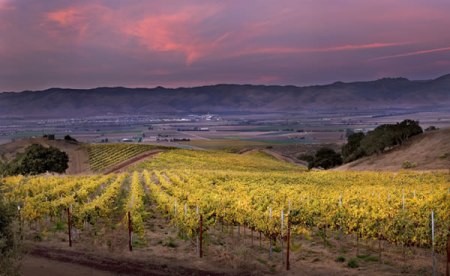27th Sunday in Ordinary Time
Fr. Victor Feltes
For a third Sunday in a row, we hear Jesus telling a parable featuring a vineyard. First, there was the parable about the generous vineyard owner who hired more and more laborers throughout the day and paid them all the same amount. Then, there was the tale of a father who asked his two sons to go and work in his vineyard. Today, Jesus refashions the Prophet Isaiah’s allegory (which we heard in our first reading) into a story about a vineyard owner’s wicked tenants. In these parables, Jesus tells us what “the Kingdom of Heaven” is like.
His stories prefigure how the Gentiles would join the Jews as the people of God’s Kingdom. For example, like vineyard workers called late-in-the-workday, God calls the Gentiles long after he called the Jews, yet both are offered the same wage of salvation. The wayward, Gentile, pagan peoples were like the son in the parable who at first denies his father but later changes his mind and faithfully serves him. And the religious leaders of the Jews were like those wicked tenants who betrayed the vineyard owner, mistreated his messengers, and ultimately murdered his son. Because of this, those leaders’ roles of leadership were taken away and given to others in Christ’s Church to produce more fruit for God.
Gospel parables are profound, inspired stories which contain more than one true meaning. Jesus’ vineyard parables not only describe what the Kingdom of God is like for groups of peoples but for individual persons as well. For instance, Jesus’ Parable of the Generous Landowner teaches us that it is not too late for a sinner to repent, answer God’s call and serve him now, while it is still day. His Parable of the Two Sons teaches us that doing the right thing is better than merely saying the right thing. Faithful obedience to our Father God means actually following through. And today’s Parable of the Wicked Tenants teaches us that even those who labor or have authority in God’s vineyard must act justly towards God and his servants. Blessed are those who respond to the Lord, profiting of the precious opportunity he has made possible for us.
Jesus’ parables foreshadow peoples entering God’s Kingdom from all lands. Today, we can see this realized in his Church. Look at us, Americans in Wisconsin, with a pastor of German ancestry ministering alongside a priest from India, and all of us worshipping the God of Israel together. Jesus Christ, the stone rejected by the builders, has become the cornerstone of a new Temple made of living stones, people from every land. By the Lord has this been done and it is wonderful in our eyes.
The Prophet Isaiah once proclaimed a song of his friend concerning his vineyard: “A vineyard on a fertile hillside. He spaded it, cleared it of stones, and planted the choicest vines (to make it fruitful); within it he built a watchtower (to protect it), and hewed out a wine press (to delight in its fruits).” Isaiah’s friend was the Lord God, whose vineyard was Old Israel, which contained the cherished plant of his people. Jesus Christ’s Church, his Bride, is the New Israel; not defined by soil or blood but open to all people. God protects her, makes her fruitful, and delights in her. He delights in us and makes us one. This is Jesus Christ’s desire for every person in our world. May the whole world come to know Christ in his Church and know the peace of God.





